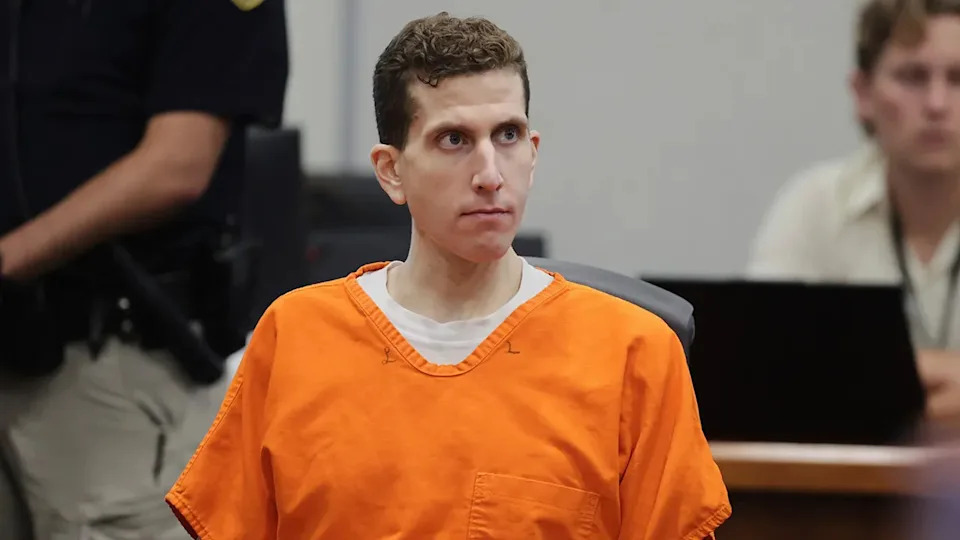
The Supreme Court handed down a very brief order on Thursday, which allows a Mississippi law restricting children’s access to social media to remain in place — for now.
It is far from clear, however, whether the Mississippi law at issue in Netchoice v. Fitch will remain in place for very long. Justice Brett Kavanaugh, who is ideologically at the center of this very conservative Supreme Court, wrote a concurring opinion explaining that he thinks the law “would likely violate [social media companies’] First Amendment rights under this Court’s precedents.”
But he joined the Court’s decision nonetheless because the plaintiff in this case, a trade group that represents internet companies, “has not sufficiently demonstrated that the balance of harms and equities favors it at this time.”
What is the “shadow docket”?
Kavanaugh’s reference to “the balance of harms and equities” refers to the rule the Supreme Court used to apply in its “shadow docket” cases, a mix of emergency motions and other matters that the justices decide on an expedited basis. Typically, when the Court grants shadow docket relief, it issues a temporary order that blocks a lower court decision until the case is fully litigated in federal appeals courts and, in some cases, the Supreme Court.
In Nken v. Holder (2009), the Court held that, when a litigant asks an appellate court to block a lower court’s decision while the case is still ongoing, it is not enough for that litigant to show they are likely to prevail on appeal. To receive shadow docket relief, the litigant must also show that they “will be irreparably injured absent a stay.” Often, appeals courts must also ask whether blocking the lower court’s decision would “substantially injure” any third parties, or otherwise harm “the public interest.”
Kavanaugh is probably right that the Mississippi law at issue in Netchoice does not irreparably injure anyone. Though the law purports to prevent minors from signing up for social media accounts without their parents’ permission, it is fairly toothless. And it is far from clear whether any actual child or teenager has not been able to use a social media site because of the law. (If you want to read more about the law and why it violates the First Amendment, I wrote that piece here.)
A special set of rules for Trump
Kavanaugh’s decision to apply Nken to the Netchoice case is odd, because the Court appears to have abandoned Nken in many of its shadow docket cases. As Justice Ketanji Brown Jackson explained in a pair of dissenting opinions earlier this year, when President Donald Trump seeks a shadow docket order, the Court typically ignores Nken and rules in favor of Trump, regardless of whether he or his administration would be irreparably injured.
In Social Security Administration v. AFSCME (2025), for example, the Republican justices ruled that DOGE, the White House office once led by billionaire Elon Musk, may have immediate access to sensitive information kept by the Social Security Administration.
Notably, however, when a judge asked one of Trump’s lawyers what harm the government would experience if DOGE’s access to this information were delayed, the lawyer did not name any such harm — saying instead that the Trump administration would “stand on the record in its current form.” In the Trump administration’s brief to the justices in AFSCME, Trump’s lawyers did not even attempt to argue that the administration faced irreparable injury without shadow docket relief. That brief devoted only one paragraph to the question of irreparable harm, and it did not identify any injury to the government that could not be unraveled by a future court order. Instead, it complained that the lower court order blocking DOGE’s access “impinges on the President’s broad authority.”
The First Amendment is (probably) safe
Kavanaugh’s Fitch opinion is clarifying for two reasons. Last June, the Supreme Court slightly rolled back First Amendment rights, holding that states may require pornographic websites to verify that their users are over age 18. It was unclear after that decision, known as Free Speech Coalition v. Paxton, whether the Court planned to further weaken the First Amendment, or whether Free Speech Coalition was a one-off decision applying solely to porn.
Kavanaugh’s Fitch concurrence suggests that the First Amendment is safe. To his credit, Kavanaugh has generally voted in favor of free speech, including in cases where Republican lawmakers sought to restrict it.
Additionally, Kavanaugh’s Fitch opinion also seems to clarify that, for most litigants, Nken remains good law. Only Donald Trump appears to enjoy the special exemption that the Court applied in cases like AFSCME.








Comments